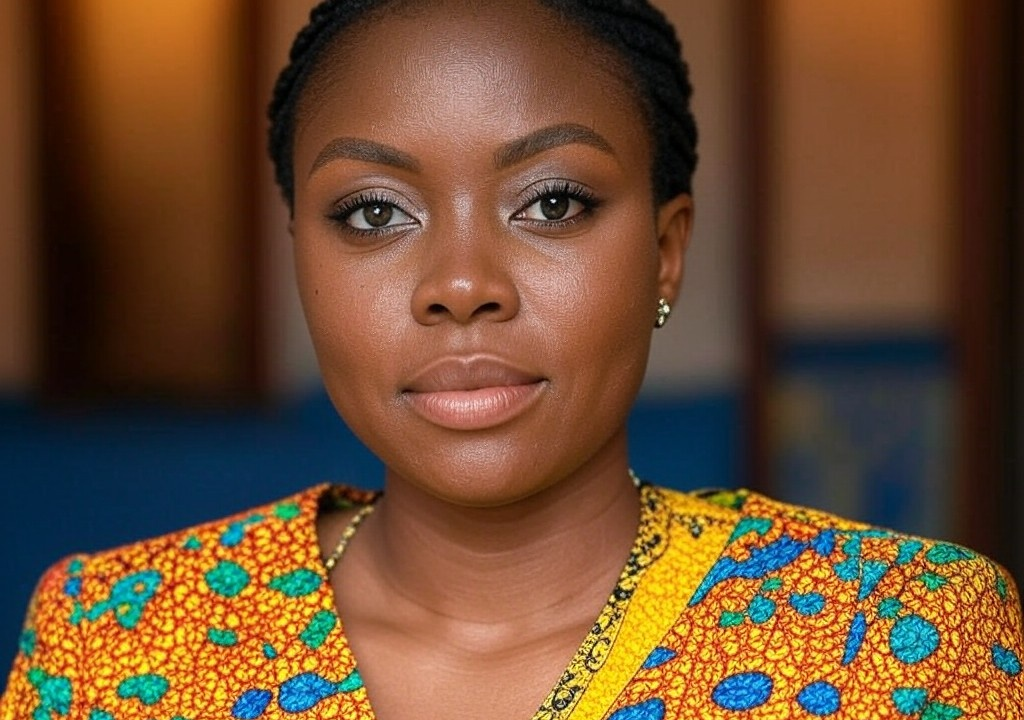You know how your day can start utterly unremarkable, and then someone waltzes into your life out of nowhere, drops a truth bomb, and sashays away like some sort of life coach in disguise? That happened to me on a balmy evening in Lagos, and while I never caught the stranger’s name, their words have lived rent-free in my head ever since—like a Burna Boy lyric I can’t stop humming.
The Encounter That Changed Everything
Let me set the scene. I was at a small bookshop-slash-café in Victoria Island, drowning my sorrows in a latte stronger than my romantic fortitude. My most recent situationship (because that’s what it was, even though I’d spent months pretending otherwise) had just dissolved like sugar in tea. The guy had ghosted me, reappeared with a breadcrumb text (“Hey, you up?”), and vanished again when I replied. Classic, right? So there I was, hunched over my laptop, venting into an unsent email titled “You’re Not as Mysterious as You Think,” when the stranger walked in.
He was probably in his late 50s, with salt-and-pepper hair, a crisp white agbada, and an air of unbothered wisdom. If serenity had a look, it was him. He placed his order, glanced at me mid-glare at my laptop screen, and said with a soft chuckle, “A smile suits you better, dear.”
Now, normally, I’d roll my eyes at unsolicited advice about my face. But there was something about his tone—free of judgment, almost fatherly—that made me pause. I forced a smile (because Nigerian politeness is coded into our DNA) and went back to rearranging my grievances into eloquent fury.
To my surprise, he didn’t leave after getting his coffee. Instead, he sat at the table next to mine, pulled out a thick paperback, and began to read. Curious, I stole a few glances, trying to figure out if this was a meet-cute moment, a lesson in boundaries, or divine intervention.
How it Happened: A Coffee Shop Therapy Session
Eventually, he looked up, caught my overly curious gaze, and asked, “Bad day?”
I hesitated before replying. Nigerian elders often turn even casual questions into interviews where “God’s grace” is the only acceptable answer. But something in his calm demeanor made me honest. “Something like that,” I said.
He nodded thoughtfully, like he already knew. “Let me guess—love problem?”
And boy, did the floodgates open. To my everlasting embarrassment, I gave him a Sparknotes version of my love life: how I had ignored red flags that practically waved a national anthem, convinced myself the situationship was “complicated” but progressive, and how I was now questioning my own worth because I hadn’t seen the ghosting coming.
He didn’t interrupt, didn’t offer a single platitude like “God’s time is best” or “You’ll meet someone new.” Instead, he said something I’ll never forget: “You know, it’s not about what they lacked. It’s about what you forgot.”
The Lesson: Don’t Forget Yourself
I stared at him, waiting for further explanation, but he went back to sipping his coffee like a sage determined to make me unravel his cryptic words.
“What do you mean?” I finally asked.
He leaned in, lowering his voice as if sharing a conspiracy. “Sometimes, we get so busy trying to be enough for them that we stop being enough for ourselves. You forgot yourself somewhere along the line, didn’t you?”
Ouch. It hit harder than a Tiwa Savage breakup anthem. I had forgotten myself—forgotten the me that loved brunch dates with my girlfriends, solo hikes on Abuja’s hills, and nights curled up with books that expanded my world. Instead, I had contorted myself into the kind of person I thought my situationship wanted: always available, always agreeable, never fully authentically me.
The stranger wrapped up his unsolicited, therapist-level intervention with this parting wisdom: “The next time someone walks out of your life without reason, let them go—and don’t forget to take yourself with you.”
Then he got up, smiled, and left. No name, no Instagram handle, just an agbada fading into the Lagos evening.
What It All Means for You
Weeks after this chance encounter, I made some changes—not just to my mindset but to the way I approached love, relationships, and, frankly, my daily skincare routine (because self-forgiveness looks better with glowing cheeks). The stranger’s words were simple, but they reminded me—and this should remind you too—that love shouldn’t erase who you are. So, before you fall for someone else, check in with yourself with these steps:
-
Redefine Enoughness
Stop measuring your worth by how someone else treats you. You’re not an accessory to someone else’s story—you’re the main character. Being “enough” isn’t tied to romantic attention. You were always enough. -
Find Your Joy Outside Relationships
Take a moment to list the things that make you you. Is it your obsession with Nollywood dramas? That knack for perfecting jollof rice recipes? Don’t lose those loves while chasing another person’s approval. -
Reflect, Don’t Regret
Ghosting, breakups, or the plain awkward mid-date “this isn’t for me” moments happen. But every encounter, no matter how infuriating, serves a purpose. Let your heartbreaks be lessons—or at least the foundation of a killer story you tell at Sunday brunch. -
Practice Emotional Boundaries
A healthy relationship doesn’t mean you give your entire identity to someone. Keep a part of yourself safe—your hobbies, your space, your solo dance routines to Afrobeat playlists. If they enhance your life, fantastic. If they drain it, push the eject button without second-guessing.
The Takeaway: Don’t Lose You
Loving someone—or even liking them—can feel like a whirlwind. You might start adapting, molding, shifting to fit into their world. And before you know it, you’ve forgotten the person who showed up to that first date with light in their eyes and confidence in their stride. Take it from me and from one remarkably insightful Lagos stranger: you don’t need to shrink yourself to fit their picture. You don’t need to forget yourself to hold onto them.
Because here’s the truth: The right person won’t ask you to. And if they do? Well, you’ve got yourself to walk away with—and that’s more than enough.




















